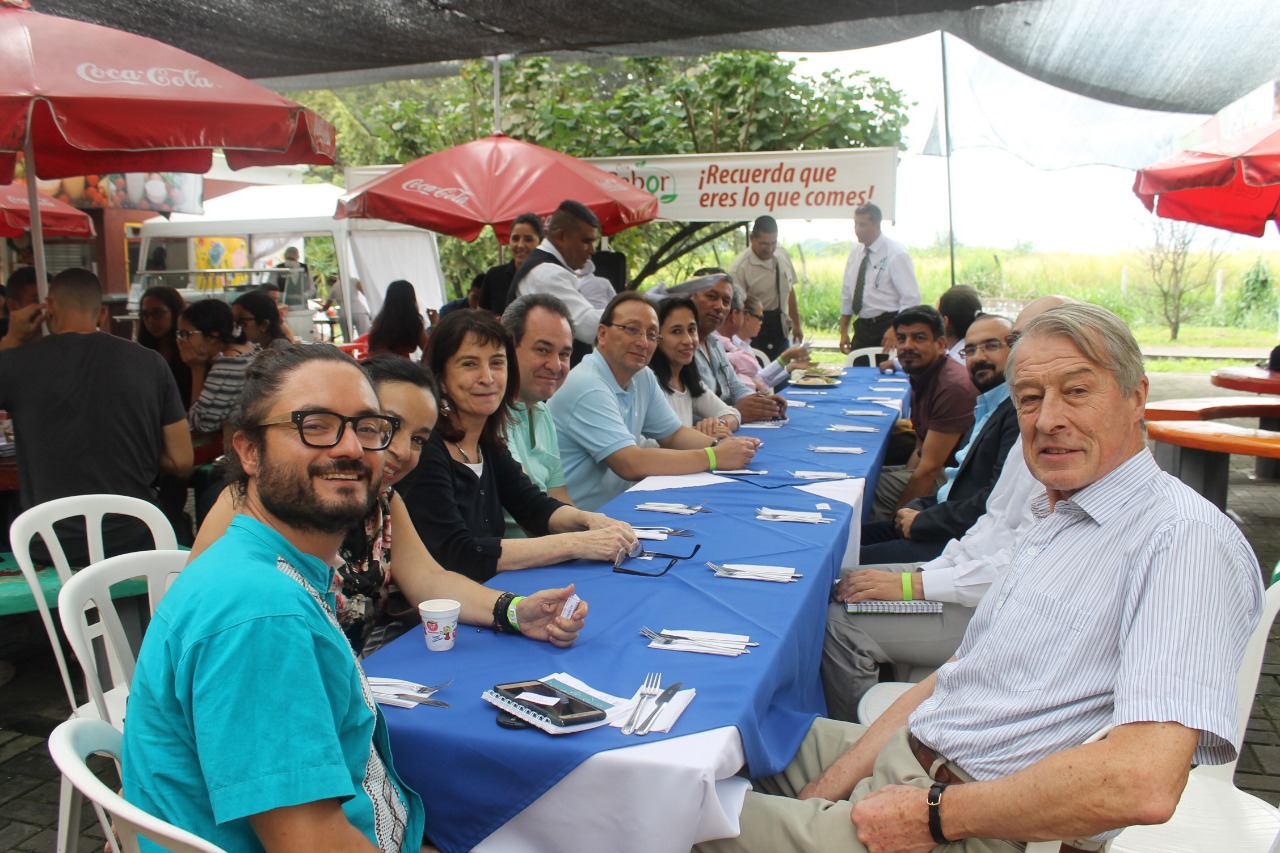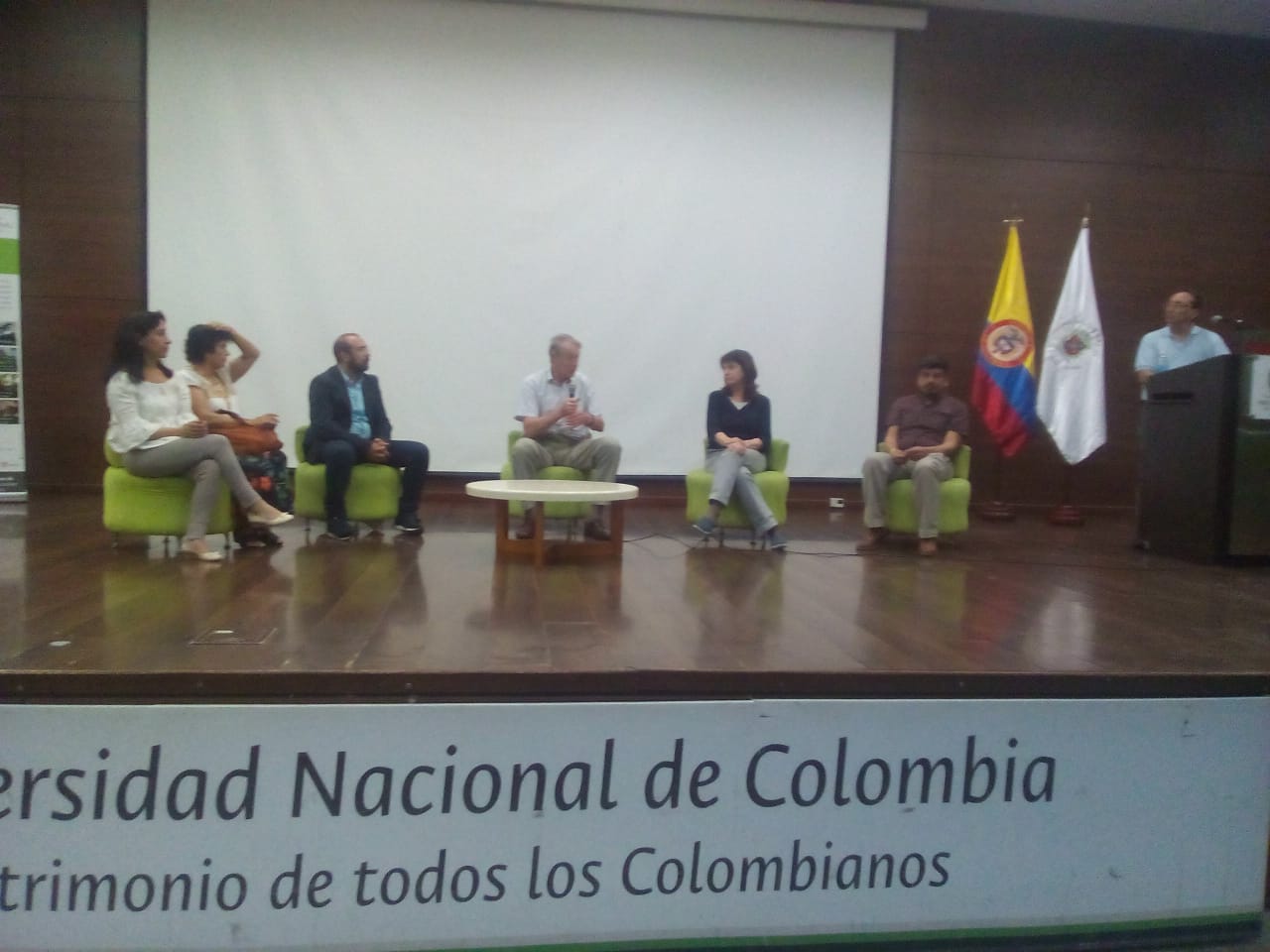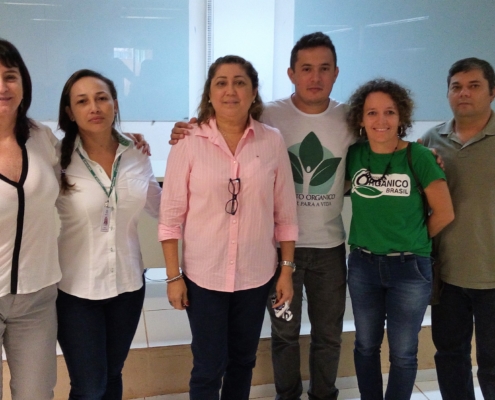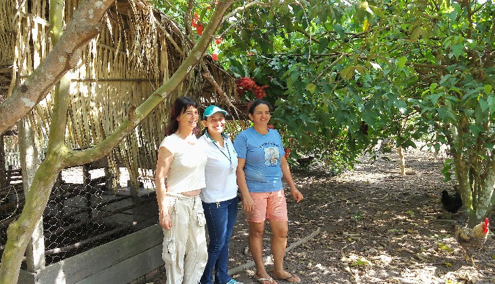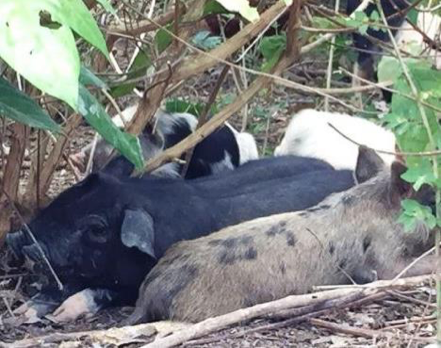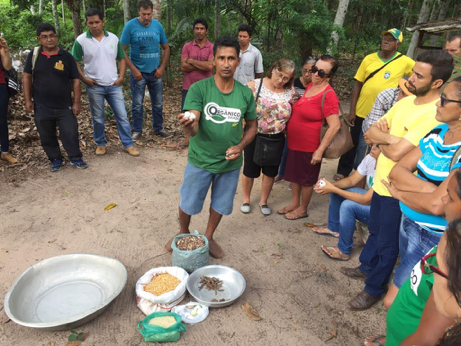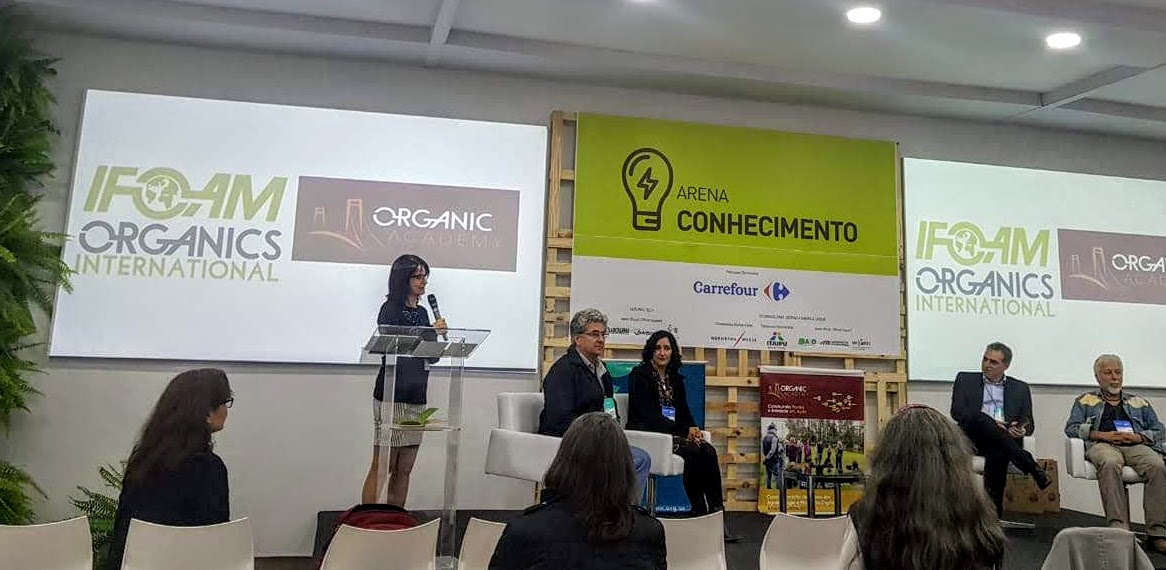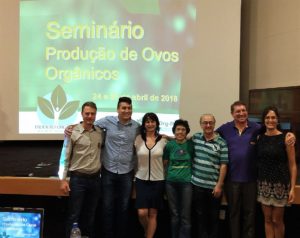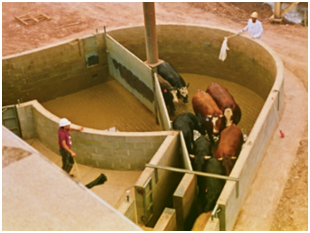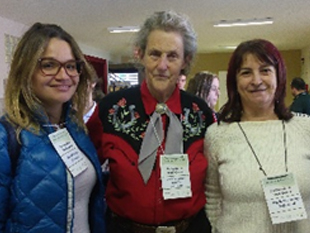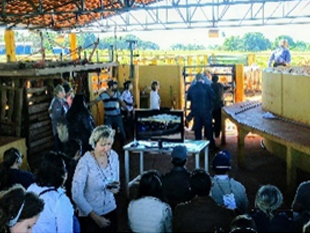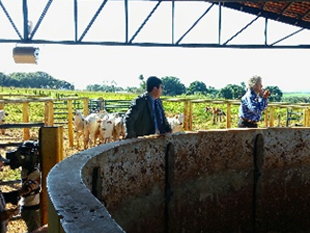Temple Grandin é uma referência mundial na área de bem-estar animal, em especial no manejo de animais de produção. Por ser autista, foi levada muito jovem para uma fazenda onde estabeleceu relações bastante próximas com os animais. Mais tarde, formou-se em Psicologia e fez Mestrado e Doutorado em Zootecnica. Atualmente, leciona na Universidade de Colorado, nos EUA, e presta consultoria a empresas. Seu autismo lhe possibilitou entender como os animais vêm o mundo e assim encontrar uma forma mais cuidadosa de manejá-los.
A convite da USP/Pirassununga, Temple esteve em julho num evento que reuniu cerca de 500 pessoas de todo o país, entre professores, pesquisadores e estudantes interessados em bem-estar animal. Além das apresentações orais, conduziu atividades práticas de manejo de bovinos no curral. Para Angela Escosteguy, presidente do IBEM foi uma oportunidade única conhecer de perto uma pessoa tão especial. “Com sua apurada percepção para entender o mundo dos animais e sua energia forte e suave, ela motivou e motiva centenas de empresas e pessoas a melhorar as condições de vida de milhões de animais, nos mostrando ainda como todos podem fazer algo para melhorar o mundo”, enfatizou.
Segundo o coordenador do evento, Dr. Adroaldo Zanella, a cadeia de produção animal está ganhando rápido conhecimento na área de bem-estar animal. Zanella destaca que Temple fala com a mesma eloquência, elegância e conhecimento sobre assuntos que incomodam humanos e assuntos que incomodam animais.“Mais do que isto, ela fala com uma abordagem positiva, de alguém com um histórico de superação de uma condição que é extremamente complexa“, avaliou.
Temple revolucionou os sistemas de produção animal nos Estados Unidos e no Canadá. Desenvolveu o conceito e o modelo do curral redondo, conhecido no Brasil como anti-stress (veja foto abaixo, do blog mecanoganadero.blogspot.com.br), e também propôs melhorias no transporte e abate dos animais.
Leia a seguir as páginas 303-308do livro “O bem-estar dos animais”, de TempleGrandin e Catherine Johnson, Editora Rocco, 2009, publicado no site www.ruralsoft.com.br.
“Tenho pensado muito ao longo dos anos e cheguei à conclusão de que nosso relacionamento com os animais que criamos para comer deve ser simbiótico. Simbiose é uma relação mutuamente vantajosa para dois seres vivos. Damos alimento e abrigo aos animais e em troca usamos as crias desses animais como alimento.
Recordo vividamente o dia seguinte ao que instalei a primeira calha de transporte com trilho central em um matadouro em Nebraska e subi para uma passarela onde via o grande rebanho de gado lá embaixo. Todos aqueles animais iam ser levados à morte por um sistema que eu havia criado.
Comecei a chorar, mas então tive um insight. Nenhum daqueles animais que estavam no matadouro teria nascido se os de sua espécie não tivessem sido criados e alimentados por pessoas. Nunca teriam vivido. As pessoas esquecem que a natureza é cruel e a morte na natureza pode ser muito mais sofrida e dolorosa do que em um matadouro moderno.
Os fazendeiros se esforçam muito para salvar os animais. O ambiente natural pode ser muito cruel. Os animais que pastam, como o gado, carneiros e cabras, são uma parte vital da agricultura orgânica e autossustentável. O estrume é utilizado como fertilizante orgânico, em vez de fertilizantes químicos. Além disso, os animais podem melhorar as pastagens, evitando a desertificação do solo. Os animais de pasto são ainda mais úteis em regiões com baixo índice de chuvas.
Tenho grande preocupação com os programas mundiais de conversão de cereais em combustível, porque vão aumentar a criação intensiva de animais. Nos Estados Unidos e na América do Sul, pastos de ótima qualidade estão sendo transformados em plantações. Em algumas áreas, o gado está sendo transferido dos pastos para currais de engorda. Em muitas terras, a lavoura vai aumentar a erosão do solo e deteriorar o ambiente. O melhor uso dessas terras é para pastagem, onde os animais contribuem para manter a terra saudável.
Frequentemente me perguntam: “Como é possível você gostar de animais e desenhar equipamentos para matadouros?”
Atualmente, a maioria das pessoas se distancia totalmente da morte, mas todo ser vivo morre. É o ciclo da vida. Se as pessoas assumem a responsabilidade de criar animais, devem também assumir a responsabilidade de lhes dar condições de vida decentes e uma morte sem dor. É preciso melhorar as condições de vida dos animais nas fazendas de criação intensiva.
Muita gente acha que a morte é o que pode acontecer de mais terrível ao animal. A meu ver, o mais importante é a qualidade de vida do animal. Para ter uma vida boa é preciso saúde, não ter dores nem emoções negativas e ter sempre muitas atividades que ativem os sistemas “buscar” e “brincar”.
